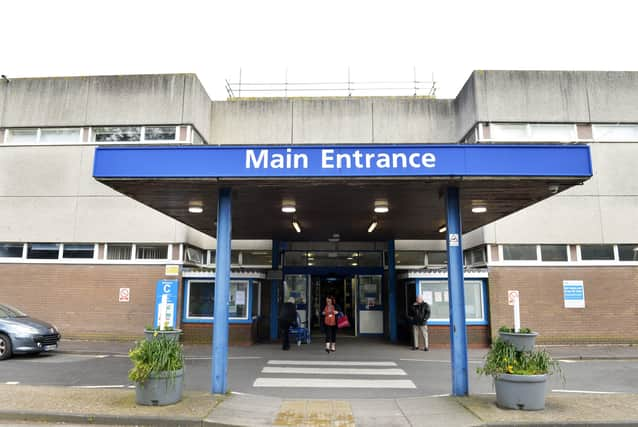Cancer referrals surge above pre-coronavirus levels in Eastbourne amid concerns over backlog


The number of people sent for urgent cancer investigations at the DGH has risen above pre-pandemic levels, new figures show.
But Macmillan Cancer Support said while an increase in cancer referrals nationally is welcome, more people are waiting longer to be seen – and rising coronavirus rates ‘risk making this worse’.
Advertisement
Hide AdAdvertisement
Hide AdNHS England data shows 1,825 people were seen by a specialist at East Sussex Healthcare NHS Trust (which covers the Eastbourne DGH and the Conquest in Hastings) following an urgent GP referral for suspected cancer in September – 11 per cent more than in the same month last year, when 1,637 appointments were recorded.
It was also a 15 per cent rise on the 1,591 urgent referrals in August.
Across England, 200,000 urgent cancer referrals were made in September, 4,600 more than during the same month in 2019.
The Health Foundation think tank called the rise “a major milestone for the health service and testament to the huge efforts of NHS staff”.
Advertisement
Hide AdAdvertisement
Hide AdMeanwhile, Macmillan’s director of policy, campaigns and influence, Steven McIntosh, said the latest figures show “encouraging improvements”, but warned that patients are generally waiting longer to see a specialist than they were last month.
“Rising coronavirus rates now risk making this worse, in the face of an already significant backlog,” he added.
“Tens of thousands of people are missing a cancer diagnosis because of Covid-19, and we know that delays to diagnosis and care can cause untold worry and affect chances of survival.”
In September, 98 per cent of patients were checked for suspected cancer at East Sussex Healthcare within two weeks of an urgent referral, meaning the trust exceeded the NHS target of 93 per cent.
Advertisement
Hide AdAdvertisement
Hide AdThe month before, 98 per cent of referrals were seen within a fortnight.
Across England as a whole, 86 per cent of people waited two weeks or less for an appointment following an urgent referral in September, down from 90 per cent in the same month last year.
An NHS spokesperson said, “The number of people having cancer treatment is now back to pre-pandemic levels and more people came forward for checks in September.
“Local NHS services have put measures in place so that people can continue to be treated safely, including through Covid protected hubs, so our message to the public remains help us help you by coming forward for care.”